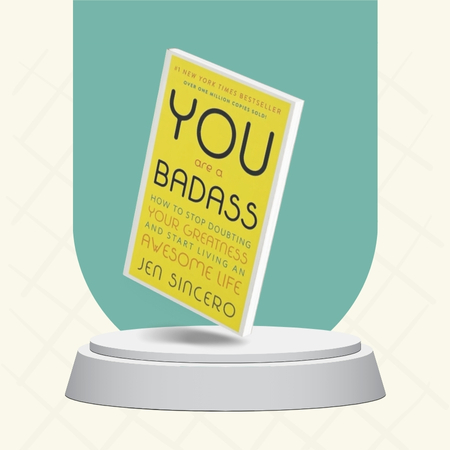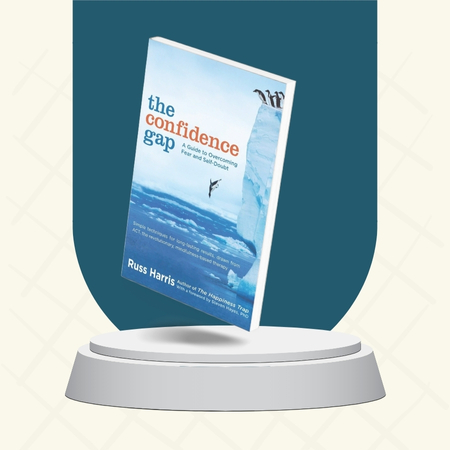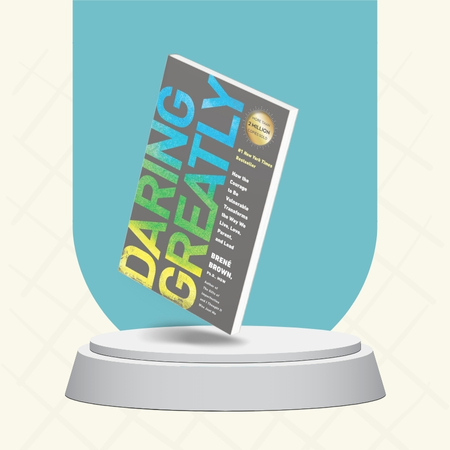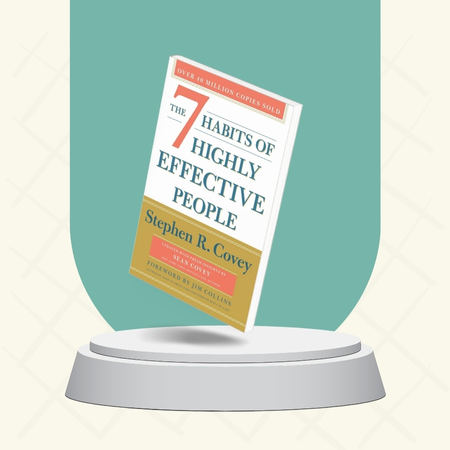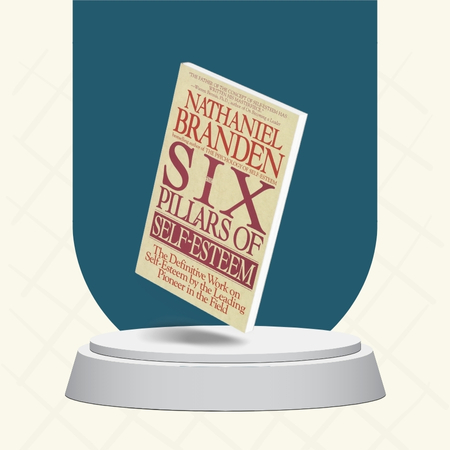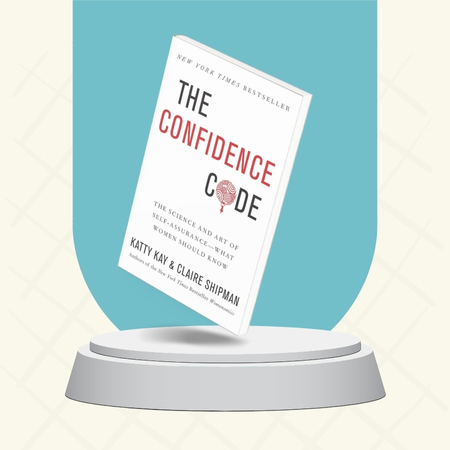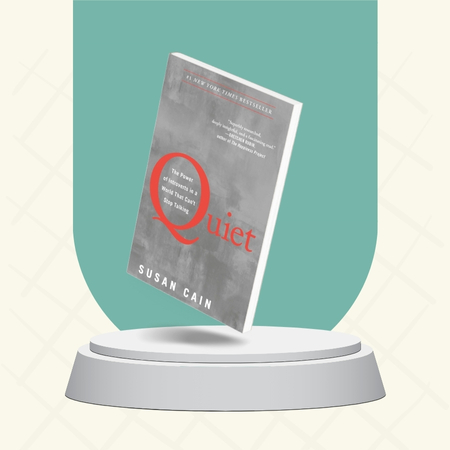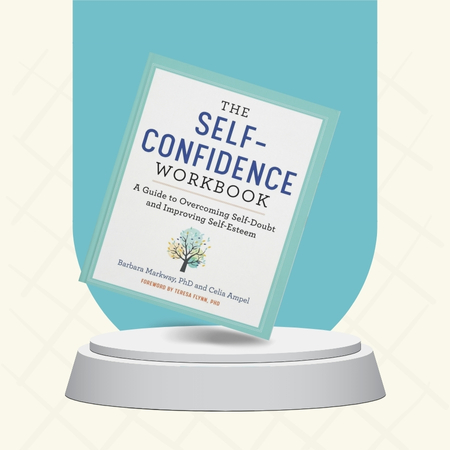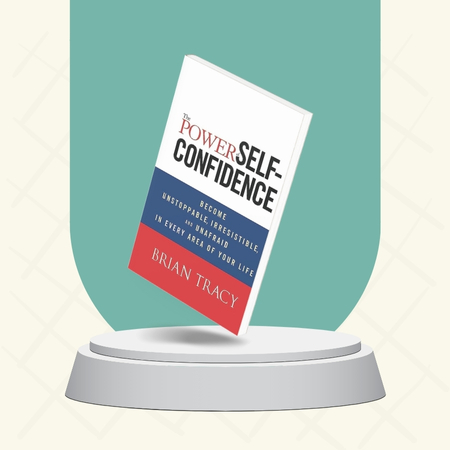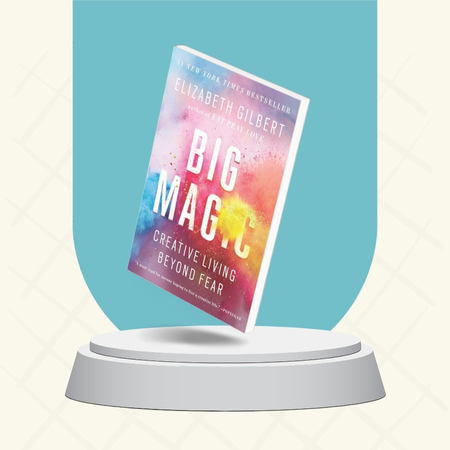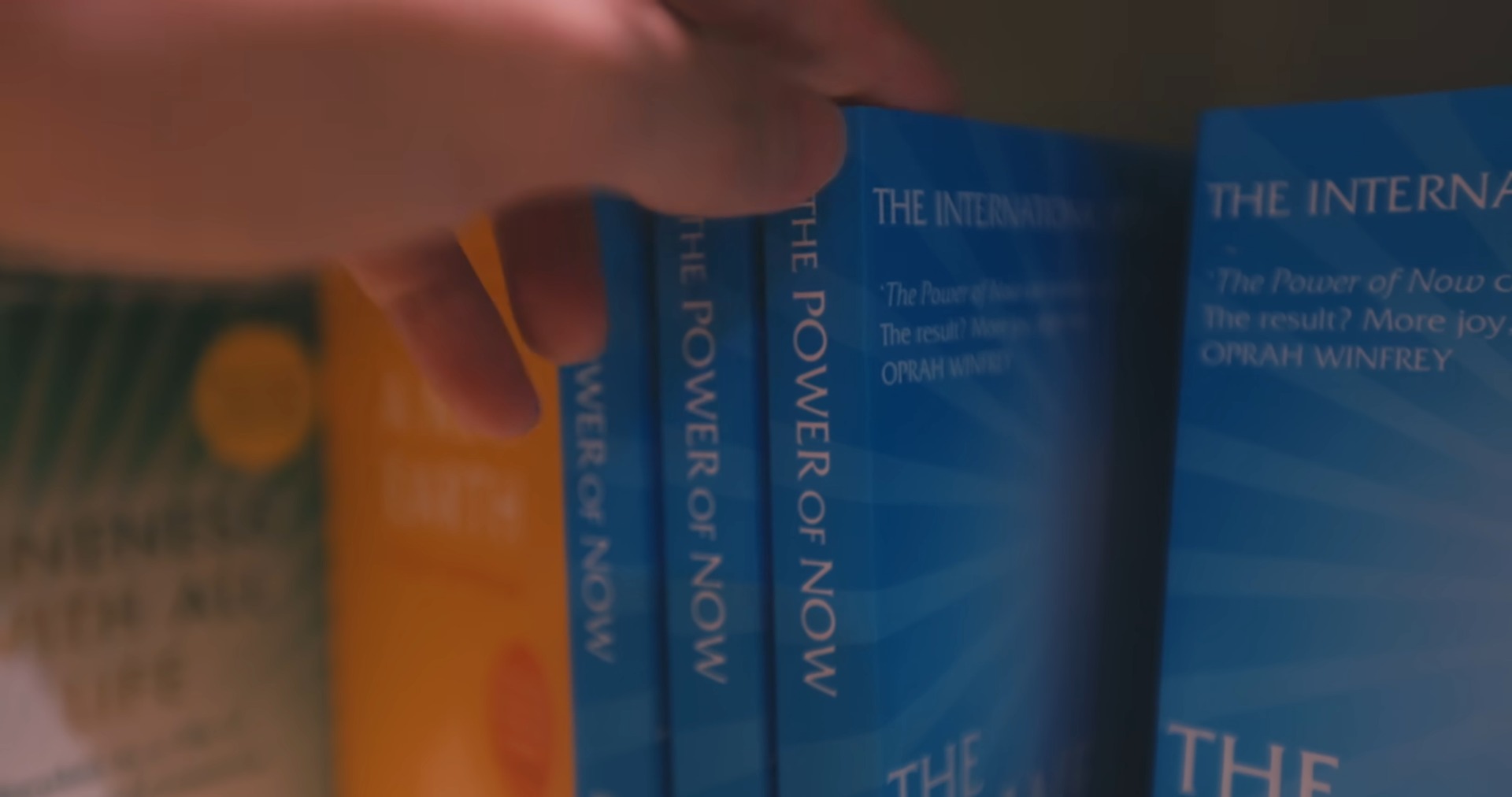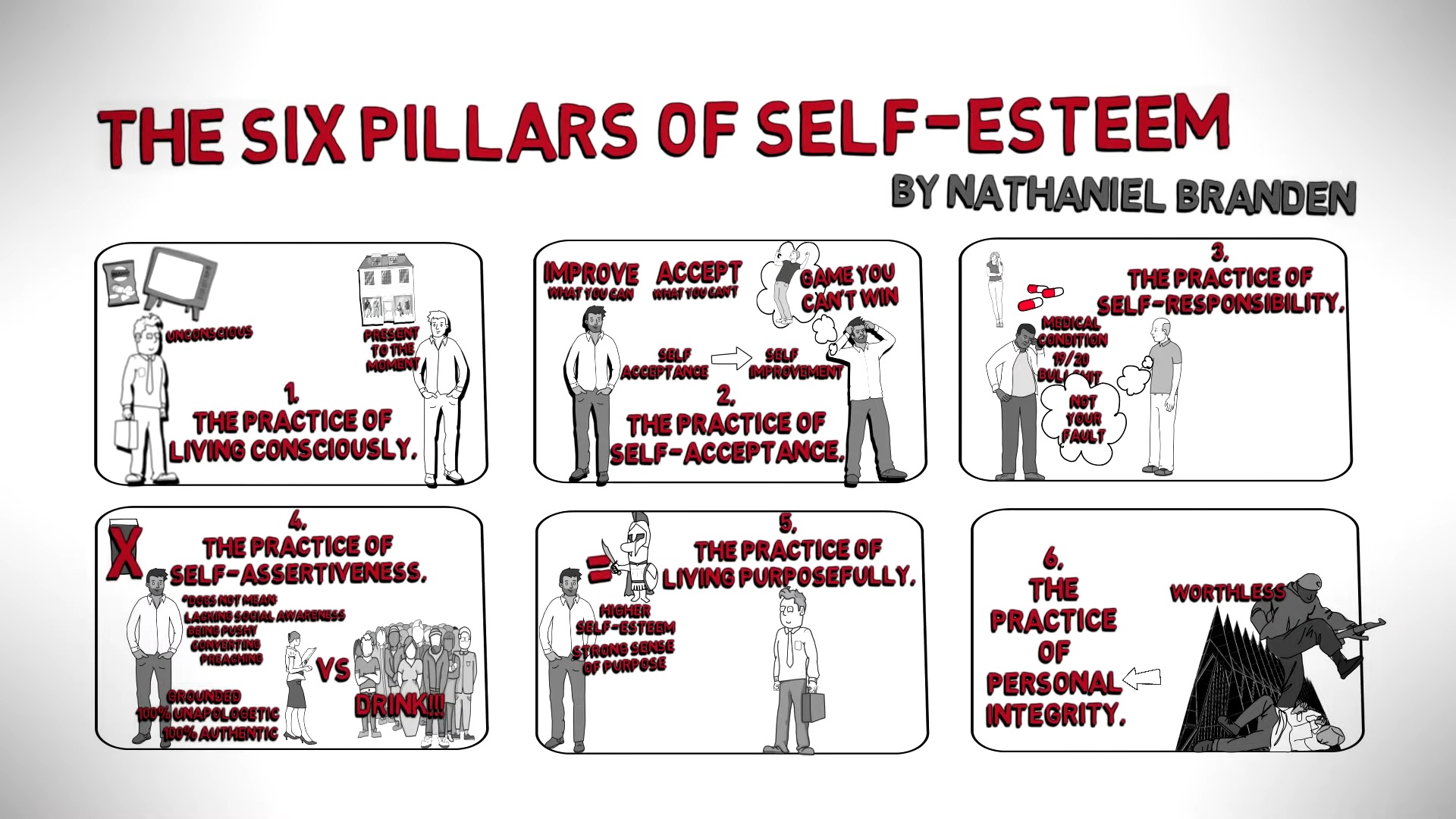Self-confidence is more than just a feeling; it’s a powerful tool that can be harnessed for personal growth and success. Books dedicated to this topic offer a variety of perspectives and strategies to help readers build and maintain a strong sense of self.
They provide insights from psychological research, practical exercises, and inspirational stories that collectively serve to enhance one’s self-belief and potential. Navigating the sea of literature about this area can be overwhelming, however, certain texts stand out for their impact and practicality.
Authors specializing in psychological wellness and self-help methodologies provide readers with not just foundational concepts, but also actionable guidance to cultivate a positive and confident self-image. These books often touch on overcoming negative self-perceptions, leveraging confidence for success, and understanding the impact of relationships and societal influences on one’s self-esteem.
Key Takeaways
- Self-confidence books offer various strategies to improve self-belief and unlock personal potential.
- Key literary works provide practical exercises alongside theoretical insights for fostering self-esteem.
- Building self-confidence is a dynamic process involving practical tools, society’s influence, and overcoming personal barriers.
Our Top Choices:




Foundational Concepts
In the journey of personal development, it is a cornerstone for well-being and success. It intertwines with self-esteem, affecting emotions, thoughts, and behavior, and is influenced by psychological factors.
Definition
Self-confidence is the trust one has in their own abilities, judgment, and power. It’s an attitude that allows individuals to have positive yet realistic views of themselves and their situations.
Self-confidence isn’t just about feeling good; it’s a fundamental psychological pillar that supports one’s willingness to take action and face life’s challenges.
Self-Esteem and Its Importance
It represents an overall sense of worth or personal value. It is important because it impacts every aspect of an individual’s life including their relationships, professional endeavors, and the ability to recover from setbacks.
High self-esteem is often associated with greater levels of compassion and acceptance towards oneself and others, and a lower likelihood of experiencing fear, anxiety, and stress.
The Psychology Behind It
Psychology is rooted in the individual’s subconscious mind, and it’s deeply linked to mental health. Factors such as early childhood experiences, societal influences, and personal growth experiences all shape it.
Consistent personal development and recognition of one’s value foster self-worth, reducing fears and insecurities, and providing a platform for growth and the ability to love oneself and lead a fulfilling life.
Key Authors and Influential Books
The realm of self-help literature teems with works that aim to bolster confidence and self-esteem. The following sections spotlight the pivotal figures whose publications have left indelible marks on readers and the seminal books that have become cornerstones for those seeking to enhance their self-confidence.
1. Jen Sincero “You Are a Badass”
- Publishing Date: April 23, 2013
- Number of Pages: 254 pages
- Publisher: Running Press Adult
- Format Availability: Available in Paperback, Kindle, Hardcover, and Audiobook formats


Author:
Jen Sincero is a #1 New York Times bestselling author and success coach. She has one-of-a-kind style that blends motivational coaching with a casual, humorous tone.
2. Russ Harris “The Confidence Gap: A Guide to Overcoming Fear and Self-Doubt”
- Publishing Date: January 1, 2010
- Number of Pages: 292 pages
- Publisher: Trumpeter
- Format Availability: Available in Paperback, Kindle, and Audiobook formats


Author:
Dr. Russ Harris is a physician, therapist, and speaker specializing in stress management.
3. Brené Brown “Daring Greatly”
- Publishing Date: September 11, 2012
- Number of Pages: 287 pages
- Publisher: Avery
- Format Availability: Available in Paperback, Hardcover, Kindle, and Audiobook formats


Author:
Dr. Brené Brown is a research professor at the University of Houston and a visiting professor in management at the University of Texas at Austin McCombs School of Business.
4. Stephen Covey “The 7 Habits of Highly Effective People”
- Publishing Date: January 1, 1989
- Number of Pages: 372 pages
- Publisher: Free Press
- Format Availability: Available in Paperback, Hardcover, Kindle, Audiobook, and Audio Cassette formats


Author:
Stephen R. Covey was an internationally respected leadership authority, educator, and organizational consultant. He was a professor at the Jon M. Huntsman School of Business at Utah State University at the time of his passing in 2012.
5. Nathaniel Branden “The Six Pillars of Self-Esteem”
- Publishing Date: January 1, 1994
- Number of Pages: 341 pages
- Publisher: Bantam Books
- Format Availability: Available in Paperback, Hardcover, Kindle, and Audiobook formats


Author:
Nathaniel Branden, Ph.D., was a prominent psychotherapist and writer known for his work in the psychology of self-esteem. He authored several influential books on the subject and was a leading figure in the field for over thirty years.
6. Katty Kay and Claire Shipman “The Confidence Code“
- Publishing Date: April 15, 2014
- Number of Pages: 256 pages
- Publisher: Harper Business
- Format Availability: Available in Hardcover, Paperback, Kindle, and Audiobook formats


Authors:
Katty Kay is a journalist and anchor for BBC World News America, while Claire Shipman is a regular contributor to ABC News’ “Good Morning America.”
7. Susan Cain “Quiet”
- Publishing Date: January 24, 2012
- Number of Pages: 333 pages
- Publisher: Crown
- Format Availability: Available in Paperback, Hardcover, Kindle, and Audiobook formats


Author:
Susan Cain is a renowned author and speaker who initiated the Quiet Movement. Her work has transformed the understanding of introversion, and she has been recognized as a top influencer in leadership and management.
8. Barbara Markway and Celia Ampel “The Self-Confidence Workbook”
- Publishing Date: October 9, 2018
- Number of Pages: 178 pages
- Publisher: Althea Press
- Format Availability: Available in Paperback, Kindle, and Spiral-bound formats


Authors:
Barbara Markway, Ph.D., is a licensed psychologist with nearly 30 years of experience, and Celia Ampel is a professional writer. Together, they bring a blend of clinical expertise and accessible writing to this workbook, making it a valuable resource for anyone looking to enhance their self-confidence.
9. Brian Tracy “The Power of Self-Confidence”
- Publishing Date: January 1, 2012
- Number of Pages: 194 pages
- Publisher: Wiley
- Format Availability: Available in Hardcover, Paperback, Kindle, and Audiobook formats


Author:
Brian Tracy is a renowned author, speaker, and CEO of Brian Tracy International. He specializes in training and development of individuals and organizations.
10. Elizabeth Gilbert’s “Big Magic”
- Publishing Date: September 1, 2015
- Number of Pages: 276 pages
- Publisher: Riverhead Books
- Format Availability: Available in Paperback, Hardcover, Kindle, and Audiobook formats

Author:
Elizabeth Gilbert is a bestselling author known for her memoir “Eat Pray Love.” She has been a finalist for several prestigious awards and is celebrated for her insightful and inspirational writing on creativity and personal growth.
Development Strategies
Developing self-confidence is not just about the mindset; it involves adopting practical strategies that inspire real change. These tactics contribute to an individual’s overall success and well-being, addressing specific challenges like fear, anxiety, and the need for personal development.
Building Confidence Through Action
Taking decisive actions can significantly boost confidence levels. As individuals engage in new challenges and achieve small victories, their self-assurance grows.
Action is fundamental to success; it reinforces the belief in one’s abilities. One method to cultivate this proactive approach is through confidence hacks, such as the “power pose.” Small choices and actions consistently taken embody the art of extraordinary confidence.
Overcoming Fear and Anxiety
Fear and anxiety are common obstacles in the path of self-confidence development. Strategies to overcome these include exposure to fearful situations in a controlled manner and relaxation techniques to manage stress.
Building self-confidence often requires one to confront social anxiety head-on, thereby reducing the power fear holds over choices and actions.
Acceptance and Commitment Therapy
Acceptance and Commitment Therapy (ACT) is a psychological intervention that focuses on creating a rich, meaningful life while accepting the pain that inevitably goes with it. It involves principles like cognitive defusion, being present, and aligning one’s actions with chosen values.
ACT provides tools for individuals to develop psychological flexibility, which in turn enhances their confidence and sense of freedom.
Integrating Self-Help Methods
Integrating self-help methods into daily life can significantly bolster one’s confidence. Books focusing on self-help offer a range of strategies, from mindfulness and meditation to actionable exercises that confront fears and reprogram limiting beliefs.
Self-Help Books
Feel the Fear and Do It Anyway by Susan Jeffers is a potent tool for individuals aiming to overcome anxiety and move forward with confidence. Jeffers’ work encapsulates the essence of courage as she illustrates how one can acknowledge their fears yet not allow them to dictate their actions.
Maxwell Maltz’s Psycho-Cybernetics encompasses a cornerstone concept in self-improvement literature. It offers a scientific approach, suggesting that one can transform their self-image through visualization techniques, thereby affecting their confidence levels.
Among the most impactful self-help books is Awaken the Giant Within by Tony Robbins. Robbins encourages readers to take control of their mental, emotional, and financial destinies, which can play a pivotal role in shaping self-assurance.
Meditation is often recommended to enhance the mental state. While not a book, the practice itself is frequently cited across various self-help materials as a beneficial tool for grounding oneself and nurturing a state of inner peace.
This tranquility is a solid foundation upon which confidence can be built. The Confidence Gap by Russ Harris also makes a significant contribution to this genre by detailing a pathway to self-belief through acceptance and commitment therapy principles, emphasizing mindful action.
The above titles represent only a glimpse of the numerous resources available for those looking to strengthen their self-confidence through proven self-help techniques.
Enhancing Self-Belief and Potential
To elevate one’s self-belief and unlock potential, individuals may turn to resources that guide them through the journey of personal growth and self-discovery. Grounded strategies for nurturing confidence and fostering a mindset geared toward fulfillment are essential.
Harnessing the Power of Positive Thinking
Positive thinking is integral to developing self-belief. It is the foundation upon which confidence is built. Books like “The Magic of Thinking Big” emphasize the transformative power of positive self-talk and thought patterns.
By consciously shifting one’s focus to positive outcomes, one can overcome self-imposed limitations and expand their realm of possibilities.
Key Actions for Positive Thinking
- Engage in regular positive self-talk.
- Challenge negative thoughts proactively.
Realizing Your Potential for Personal Growth
Personal growth is a continuous journey of self-discovery and realization of one’s full potential. The concept of growth is central to “The Six Pillars of Self-Esteem” which details a comprehensive framework for enhancing self-esteem.
This approach encourages individuals to embrace experiences as opportunities for learning and development, thereby increasing their confidence and sense of fulfillment.
Strategies for Growth
- Set achievable goals to track progress and build competence.
- Reflect on personal experiences to glean insights for improvement.
Practical Tools and Exercises
To effectively build higher self-esteem, one can engage in a variety of exercises found within confidence-themed workbooks and apply distinct techniques. These practical tools aim to solidify a foundation of self-assurance through actionable tactics and mindful practices.
Workbooks
The Self-Confidence Workbook: A standout tool, this workbook presents structured exercises that encourage reflection on personal strengths and areas for improvement. It provides a step-by-step approach to bolstering self-assurance, employing proven methods to foster long-term confidence.
Activities often include journaling prompts, challenges for facing fears, and building a positive affirmation routine. These tools guide individuals in transforming their mindset and help in internalizing the confidence code — a set of principles for self-belief.
Techniques for Strengthening Self-Esteem
Tactics for Presence: It is essential to understand how body language impacts perception. Techniques such as power posing can induce a greater sense of confidence and presence in both personal and professional settings. By adopting an assertive stance, individuals can begin to internalize a stronger self-image.
Actions like setting and achieving small goals contribute to a growing sense of competence. Readers can harness tactics outlined in books like The Confidence Effect to systematically enhance their self-confidence over time.
Meditation and Mindfulness
Meditation Practices: Incorporating meditation into daily life greatly improves focus and reduces stress, both conducive to a confident demeanor. Regular practice enhances awareness and self-connection, creating a powerful internal sense of security.
Mindfulness exercises improve present-moment awareness and can be found in various self-help books. They teach how to tune into bodily sensations and thoughts without judgment, fostering acceptance and bolstering a confident self-image.
The Impact of Relationships and Society
The books on self-confidence not only delve into personal development but also address how relationships and societal interactions influence one’s sense of confidence. They offer insights into strengthening personal connections and enhancing social standing through confident behaviors.
Confidence in Relationships
In relationships, it plays a crucial role in establishing mutual respect and fostering a healthy dynamic. Books such as Attached by Amir Levine and Rachel Heller explore attachment styles, highlighting how understanding one’s own style can lead to more secure and confident interactions in love and friendship.
A person’s self-assurance often bolsters their ability to show compassion and love, which are foundational elements of any strong relationship.
Navigating Social Situations with Confidence
Social anxiety is a common challenge many face in group settings or public spaces. Building confidence in such situations is vital for personal and professional growth.
Expert advice books suggest that practicing hacks can significantly improve one’s ability to interact and communicate effectively in society.
For instance, The Confidence Gap by Russ Harris incorporates strategies directed towards mastering social interactions through mindfulness and values-driven activities.
Overcoming Negative Self-Perceptions
Negative self-perceptions can be a barrier to personal growth and happiness. Books that focus on overcoming self-doubt and self-criticism can offer strategies that promote self-compassion and an improved sense of self-worth, helping to alleviate the impact of these negative perceptions on mental health.
Combatting Self-Doubt and Inner Criticism
Self-doubt and inner criticism can significantly affect an individual’s confidence and self-esteem. “The Six Pillars of Self-Esteem” provides practical guidance on becoming more self-assured.
In her book “The Gifts of Imperfection,” Brené Brown encourages embracing authenticity, which helps individuals combat negative self-talk by fostering self-compassion.
Techniques for building self-worth
- Identifying and challenging negative thought patterns.
- Practicing regular self-affirmation.
Approaches to enhance self-compassion
- Mindfulness exercises.
- Self-care routines.
Addressing Depression and Self-Criticism
Depression often intertwines with self-criticism, further complicating an individual’s mental health. Books like “The Confidence Gap” describe how Acceptance and Commitment Therapy (ACT) can be used not just to overcome self-doubt but also to create a more fulfilling life by aligning actions with personal values.
This helps individuals develop resilience against depressive thoughts, nurturing a healthier self-image. Key concepts for managing depression and self-criticism:
- Accepting difficult emotions without judgment.
- Committing to actions congruent with personal goals.
Resources that facilitate mental health improvement:
- Techniques drawn from evidence-based therapies.
- Exercises designed to reinforce positive self-perceptions.
Books addressing these topics serve as valuable resources for anyone looking to improve their self-esteem and mental health through self-compassion and understanding.
Cultivating a Confident Personal Image
Cultivating a confident personal image is essential for bridging gaps and enhancing presence. It involves not only nurturing self-esteem and self-worth but also mastering body language that reflects higher self-esteem.
If you struggle with self-confidence, consider making a change like getting a nose job or trying out a new hair color. It could help boost your confidence without breaking the bank or going under the knife.
The Role of Body Language
Body language is a powerful communicator of self-confidence. Open postures, steady eye contact, and purposeful gestures can convey assurance and command attention.
For individuals looking to improve their presence, books such as The Definitive Book of Body Language provide guidance on how nonverbal cues can be aligned with one’s self-image to project authenticity and confidence.
Developing a Positive Self-Image
Developing a positive self-image centers around building self-love and self-worth. Consistent self-reflection and affirmative self-talk are critical practices highlighted in resources like The Gifts of Imperfection by Brené Brown.
In this book, readers learn to embrace their genuine selves and reject the societal pressures of perfection. Creating a positive internal dialogue builds the foundation for self-assurance that is reflected outwardly.
Success and Courage
In exploring the connection between confidence and success, it’s essential to consider strategic approaches for building self-assurance and drawing lessons from those who’ve adeptly combined the two.
The Relationship with Success
It is the bedrock upon which many successful individuals build their achievements. It’s this self-assuredness that propels people to take the necessary risks associated with significant accomplishments.
Authors like Jen Sincero encourage embracing this mindset in works such as “You Are a Badass”, which suggests that belief in oneself is a critical step toward reaching one’s goals.
Sustaining Strategies
To maintain a resilient sense over time, sustainable strategies are crucial. Nathaniel Branden, known for his extensive work on self-esteem, promotes the Six Pillars of Self-Esteem, which outline principles for nurturing and preserving a positive self-image.
The pillars provide a blueprint for individuals seeking a robust foundation for long-term personal growth and success.
Learning from Successful Confident Individuals
Observation and learning from successful individuals can yield valuable hacks. Dale Carnegie’s timeless advice in “How to Win Friends and Influence People“ emphasizes the importance of interpersonal skills and self-assurance in personal and professional success.
Examining how these individuals approach challenges with confidence can offer practical insights into achieving one’s own ambitions. By weaving strategies and exemplars of success, individuals can create a powerful framework for achieving fulfillment and happiness in their endeavors.
FAQs
Selecting the right literature is a crucial step for anyone looking to improve their self-confidence. The questions below address specific needs and recommend titles for different audiences seeking to enhance their self-esteem through reading.
What are the top recommended books for improving self-confidence in children?
For children, titles like “A Smart Girl’s Guide: Confidence” provide guidance tailored to younger readers. It focuses on common situations children face and how to handle them with confidence.
Which books should I read to overcome confidence issues coupled with anxiety?
To address confidence issues alongside anxiety, “The Confidence Gap: A Guide to Overcoming Fear and Self-Doubt” by Russ Harris is often suggested due to its practical strategies based on Acceptance and Commitment Therapy (ACT).
Could you suggest effective self-confidence books suited for young adults?
Young adults can benefit from “The Self-Esteem Workbook for Teens” by Lisa M. Schab. This workbook offers exercises to help teens build confidence and maintain a positive self-image.
What are some well-reviewed self-help books on building self-esteem for adults?
Adults looking to improve their self-esteem might turn to “The Six Pillars of Self-Esteem” by Nathaniel Branden, which provides a comprehensive approach to self-improvement based on clinical research.
Can you recommend literature on enhancing self-confidence through improved communication skills?
Books such as “How to Talk to Anyone: 92 Little Tricks for Big Success in Relationships” by Leil Lowndes offer actionable advice on communication skills that can ultimately boost self-confidence.
What are some strategies to regain self-confidence according to popular self-help books?
Popular self-help books often recommend setting realistic goals, practicing positive self-talk, and gradual exposure to feared situations as effective strategies for regaining self-confidence.
Final Takeaways
Self-confidence is fundamental to personal growth and reaching one’s true potential. For readers seeking to enhance this trait, an array of books on confidence provides proven strategies and principles.
Here, they can discover insights that foster their confidence journey. Among the recommended reads titles like “The Confidence Code” illuminate the science behind self-assurance, especially for women seeking to bridge the confidence gap. They explain methods to bolster self-esteem through actionable strategies.
Another notable contribution to the genre is “The Six Pillars of Self-Esteem”, which identifies the critical elements required for strengthening one’s self-perception. The book presents a structured approach to self-esteem enhancement.
- Growth Mindset: Readers will uncover the significance of cultivating a growth mindset to break through barriers.
- Actionable Advice: Books like “The Confidence Gap” deliver actionable advice to convert knowledge into daily habits.
When it comes to the journey of self-improvement, these books serve as valuable tools. They empower readers with the understanding that confidence is not an innate attribute but a skill that one can develop over time.
The principles and strategies found within these pages cater to a wide audience, regardless of where one stands on the spectrum of self-confidence. Those invested in their personal development will find these books to be trusty guides, helping chart a course toward a more confident and assertive self.
Related Posts:
- Top 10 Best Self-Compassion Exercises in 2024 -…
- Top 10 Must-Read Books for Nurturing Mental Health…
- How to Start Your Self Care Journey in 2024 - 10…
- 7 Best Biotin for Hair Growth in 2024- Top Picks +…
- How to Give Yourself a Break in 2024 - Top 10 Things to Do!
- Top 10 Benefits Of Using Weighted Blankets In 2024 -…



